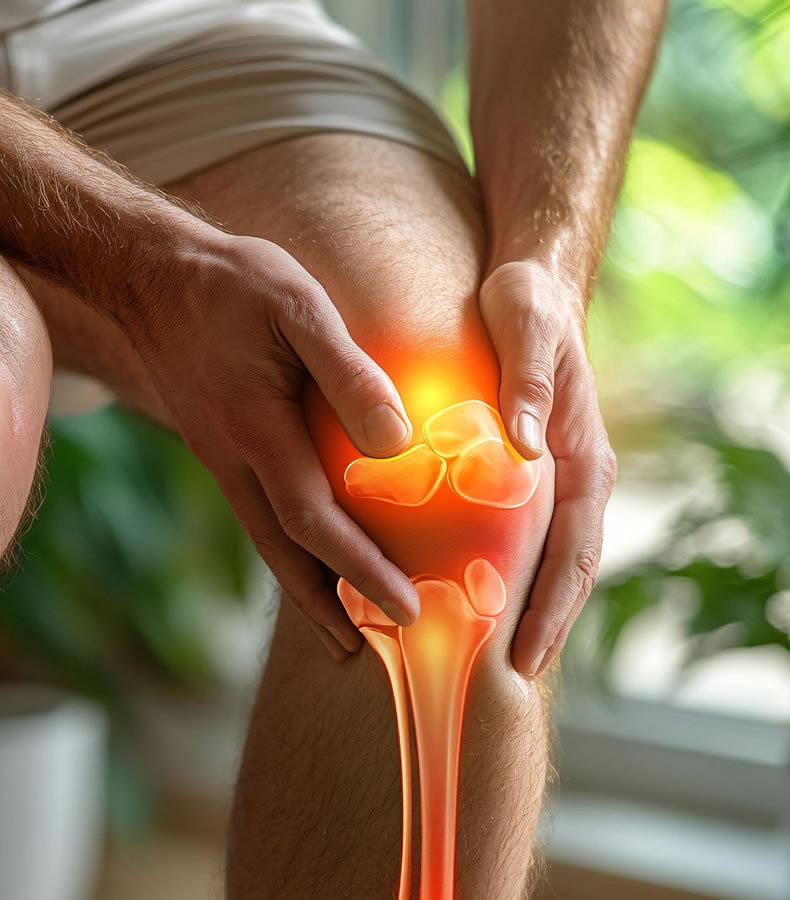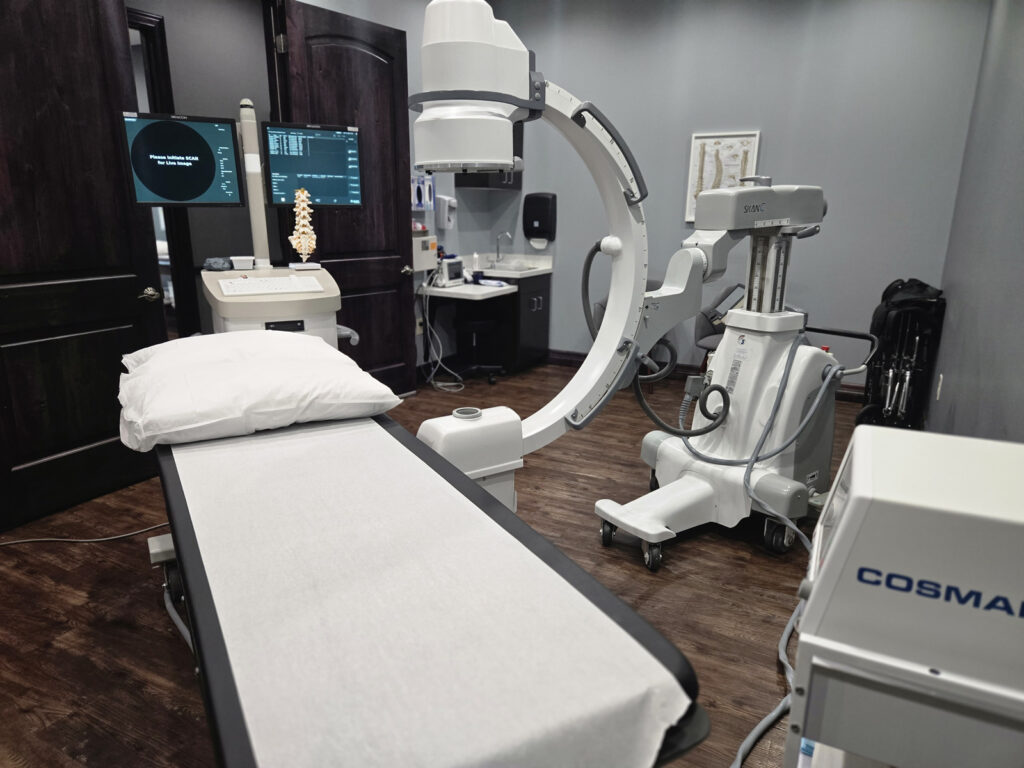Knee Injections (Steroid & “Jelly” Injections)
Targeting The Source of Knee Pain
Easing Knee Pain and Stiffness Without Surgery
At Williamson Pain Institute, we understand how much knee pain can interfere with your daily life — whether it’s climbing stairs, walking, or simply enjoying your favorite activities. Knee injections are a safe, minimally invasive option that can reduce inflammation, restore mobility, and provide lasting relief without surgery.
What Are Knee Injections?
Knee injections involve placing medication directly into the knee joint under image guidance. Depending on your needs, we offer:
- Corticosteroid (steroid) injections – reduce inflammation and swelling inside the joint, often providing weeks to months of relief.
- Viscosupplementation (“jelly” injections) – hyaluronic acid injections that improve lubrication inside the knee, helping the joint move more smoothly and decreasing stiffness and pain.
These treatments are especially helpful for patients with arthritis or cartilage wear.

How Knee Pain Develops?
Your knees bear much of your body weight and are vulnerable to wear and tear over time. Common causes of knee pain include:
- Osteoarthritis – thinning or breakdown of cartilage that cushions the joint
- Rheumatoid arthritis or other inflammatory conditions
- Cartilage injuries or meniscus tears
- Overuse or repetitive stress injuries
- Post-injury changes such as stiffness and inflammation after trauma
Good To Know
- When the protective cushioning breaks down or becomes inflamed, the knee joint becomes painful, stiff, and harder to move.
How The Procedure Works
1) Preparation
The skin is cleaned, and local anesthetic is used for comfort.
2) Precise Injection
A thin needle is guided into the knee joint. Medication (steroid or hyaluronic acid) is injected directly where it’s needed.
3) Recovery
Patients go home the same day and typically resume light activities right away. Relief may begin within hours (for steroids) or build over several weeks (for jelly injections).
Benefits & Who It Helps
- Reduce pain and swelling
- Improve mobility and walking tolerance
- May delay or reduce the need for knee replacement surgery
- Safe, outpatient procedure with minimal downtime
- Tailored options depending on your condition and goals
Risks & Safety
Knee injections are generally safe. Possible short-term effects include soreness at the injection site, mild swelling, or stiffness. Rare complications like infection or allergic reaction are very uncommon when performed under image guidance by an experienced physician.
Next Steps
If knee pain is limiting your life, steroid or jelly injections may provide the relief you need to stay active. At Williamson Pain Institute, our team will evaluate your condition, discuss your treatment goals, and recommend the best option for you.
Call Williamson Pain Institute today to schedule a consultation and see if knee injections are right for you.
Insurance accepted. Most plans, including Medicare, cover knee injections when medically necessary. We’ll verify your benefits and guide next steps.

Your Questions Answered
Hip injections are used to reduce inflammation and pain inside the hip joint, and to help confirm whether the hip is the true source of your discomfort.
Most hip injections contain a mix of a local anesthetic (for immediate relief) and a corticosteroid (to reduce inflammation and provide longer-lasting results).
Most injections take about 20–30 minutes, including preparation and recovery time in the office.
Relief may begin within hours due to the anesthetic. Steroid medication usually takes 2–5 days to start working fully.
Relief often lasts several weeks to months, depending on your condition. Some patients get longer relief, especially when combined with therapy or lifestyle adjustments.
Risks are rare but can include temporary soreness, bleeding, or infection. Serious complications are extremely uncommon when performed under image guidance.
